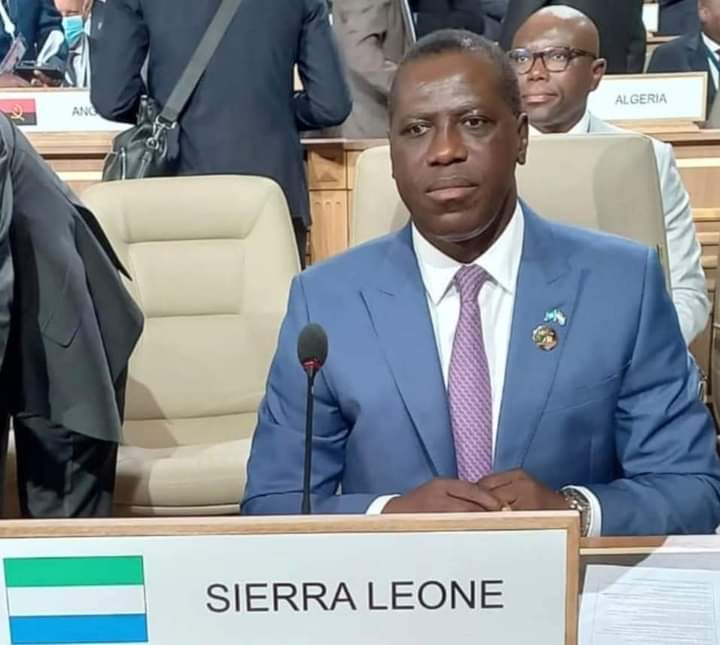The Ministry of Foreign Affairs and International Cooperation is still in the spotlight for the wrong reason but mainly for its failure to adhere to expert advice not to honour payments, in terms of salaries and other benefits, to two its staff who were previously recalled from their duty locations after which the payments were made.
During the period under review, June 2018 to 2021, huge salaries and leave allowances amounting to US$220,825.83 was paid to a staff after the end of her Foreign Service duty tour at the Embassy.
She was recalled to headquarters and paid her repatriation allowance on 17th September, 2017.
The decision to pay this staff was contrary to the recommendations in the previous audit report and there was absence of evidence to show that the staff was performing duties at the Embassy for that payment to have been authorized which was an additional financial burden on the Government’s meagre resources which could have been used for other developmental activities.
The total amount paid to her was $220,825.83.
Similarly, US$231,670.04 was expended on another diplomatic staff for the period between 1st June 2018 and 31st December, 2019 .The continued stay of the staff at the Embassy was without any authority or evidence of approval.
This act led to the paying salaries to two officers for performing the same duties.
A recommendation was made for an immediate refund of those payments into the Consolidated Fund and the Director General should ensure that the officer who authorized the payments after the recall periods and the beneficiary officers must be held accountable.
In its explanation on the said issue, the Ministry of Foreign Affairs stated that on the 21st December, 2017, the Director General(DG), Human Resource Management Office (HRMO), conveyed approval to the Director General, Ministry of Foreign Affairs and International Cooperation (MFAIC), for Fatmata Dao, with Pin code 127806 to proceed on study leave with pay for 2017/2018 at her former duty station in America.
It continued that on the 1st February, 2018, the DG, MFAIC, conveyed the approval to the Minister Counsellor and Head of Chancery of the Embassy.
Then on the 1st August, 2018, the DG, MFAIC, sent another memo to the Minister Counsellor/HoC that funds had been transferred to the Mission’s account in order to make payment to Fatmata Dao.
The Minister Counsellor/HOC wrote two letters on 31st July, 2018 and 1st August 2018, to the DG, MFAIC, rejecting payment to Fatmata Dao on the grounds that she was no longer working at the Embassy and because the issue had come up in the previous audit.
However, after a while, in January 2019, the DG, MFAIC, issued another memo requesting the Minister Counsellor/HOC to make payment to Fatmata Dao after sending salary backlog for August to December, 2018 of US$31,368.55 and a backlog salary in respect of November 2017 to July 2018 of US$56,463.39.
On the 19th June 2019, the DG, MFAIC, conveyed an extension of approval for study leave with pay for Fatmata Dao with effective 2018/2019 from the DG, HRMO.
The Ministry pointed out that it was based on all those correspondence that the Embassy made the payments to Fatmata Dao: The approvals from the HRMO, the conveyance of approvals of memos, and physical sending of the funds to be paid.
On the other hand, the Ministry said when Edward Kawa was recalled, the Charge d’ Affairs and Head of Chancery then, on 12th February, 2018 wrote to the DG, MFAIC, and requested Edward Kawa’s withdrawal to be deferred because of some reasons.
It continued that on the 4th May, the Director-General wrote to the MS/HOC a memo requesting that the Mission stay action on Edward Kawa’s recall.
The memo said that Management was reviewing the matter and would be kept posted on further action. This was a management decision owing to the fact that it was a transition period in 2018, and an experienced officer was needed to facilitate the accreditations of the newly appointed Ambassador and his Deputy. The President was scheduled to make diplomatic visits to Canada and the US and an experienced officer was needed to facilitate those visits.
All those made Edward Kawa to be kept at his post for which he had to be paid.
Lamentably, the Ministry submitted justifications and supporting records as evidence of the observations on illegal payments to staff after recall from tour of duty. A further review of the submissions revealed the following:
Since Fatmata Dao was recalled from overseas duty and was paid repatriation allowance before approval of study leave with pay, the ASSL is of the view that salary and any other payments made to her should have been based on her new assignment and location, but not as a staff of the Embassy.
On the issue relating to Edward Kawa, it could be said that the explanations and supporting documents were satisfactory for periods up to the time of resumption of duty of the current HoC to whom Edward Kawa handed over duties and responsibilities.
However, payments made to Edward Kawa after that period is considered ineligible and should be disallowed. As such, expenditures after resumption of HoC amounting to US$48,735.10 should therefore be refunded and paid back into the Consolidated Fund.

